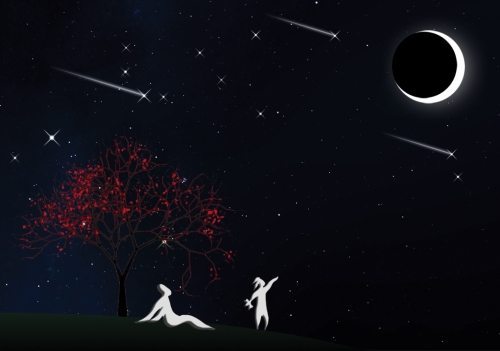
Stargazing Nights - CLOSED
- Where:
- Frosty Drew Observatory and Science Center
- When:
- Fri, Nov 22, 2024 - CLOSED
- Cost:
- Tickets may be required to attend. Please read below.
Welcome to the Frosty Drew Observatory and Science Center's Stargazing Nights! Every Friday night (weather permitting) we open our Observatory, Science Center, Sky Theatre, and telescopes to the sky and offer free stargazing and astronomy to anybody interested in observing with us.
After a beautiful stretch of amazing weather, the rain has returned. Forecasts for tonight are calling for rain, patchy fog, and overcast conditions on site. The third quarter Moon would have offered us super dark sky conditions with rise times not happening until 11:11 pm, though clouds have different plans for tonight. Due to the rather dismal forecast we are keeping the Observatory and Science Center closed tonight, and will open next on Friday, December 6, 2024 with our regular Stargazing Nights event. We’ll see you then!
Be sure to subscribe to the Frost Drew Observatory mailing list and follow us on Instagram to receive status updates about our Stargazing Nights program and more.
Preparing for Your Visit:
Check out our page on Visiting Frosty Drew Observatory to learn more about what to expect at the Observatory and better help you prepare for your visit.
How to Prepare for Late Autumn Conditions: The Frosty Drew Observatory is located inside Ninigret Park and borders the Ninigret National Wildlife Refuge. Insects and arachnids are a concern when visiting the Frosty Drew campus. We have observed mosquitoes, green head flies, deer flies, ticks, biting ants, and more. Please read the Mosquitoes and Insects section on our Visiting the Observatory page to familiarize yourself with adequate preparation measures.
Please note that we do not allow any white lights on our campus or in Ninigret Park from dusk - dawn, with the exception of low beam headlights while in motion. This is to ensure an equally awesome view of the night sky for all and to allow for the use of light sensitive astronomical equipment. Learn more about why we have this requirement in The Red Light District.
